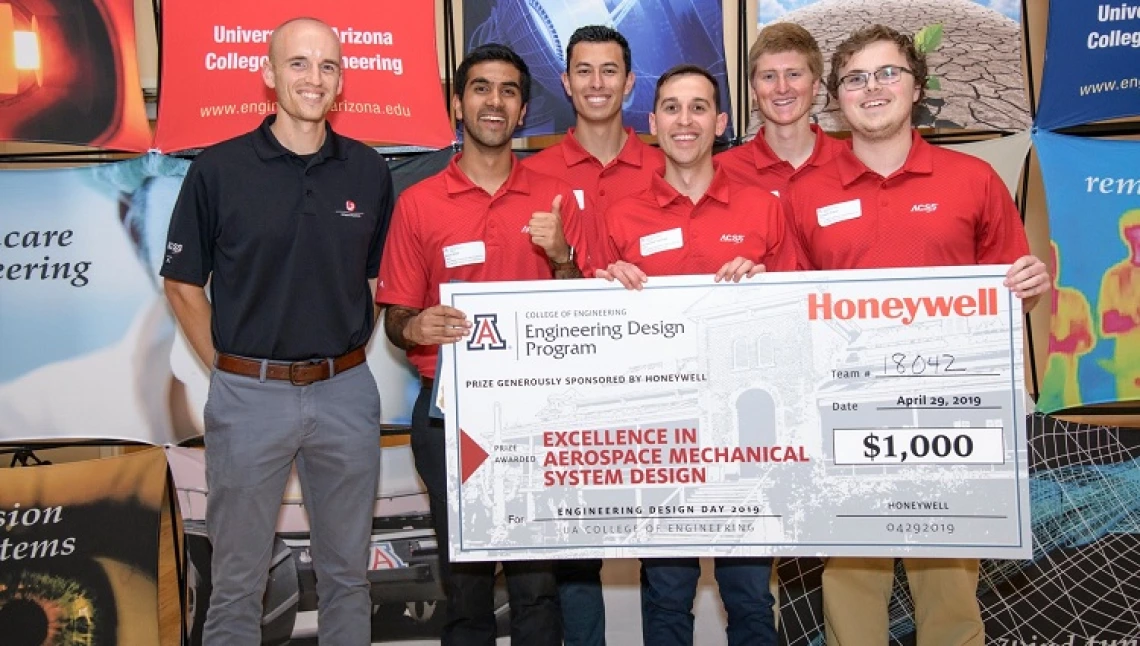AME Alum Discusses Journey From Capstone Student to Sponsor

Jay Crossman, who earned his bachelor’s degree in mechanical engineering in 2010, now works as a rapid innovation engineer at L3Harris Technologies, located at the ACSS division in Phoenix. In this Q&A, he discusses his experiences as both a student and sponsor in the Interdisciplinary Capstone program.
Tell us a little bit about the capstone project you did when you were a student.
Our project sponsor was Boeing – specifically the helicopter division in Mesa. They made a design change to the exhaust system to reduce the infrared signature, but that created more drag on the helicopter, so it reduced their flight speed and the altitude it could get to. My team designed the drag-reducing solution for the helicopter.
Did your experience in the capstone program prepare you for your career and/or continued studies?
I did go straight into the workforce after graduation. The awareness of the waterfall procedure – where you start with your requirements, work through PDR, CDR, and ultimately create a final design – was especially helpful. I had never gone through that before, so it was good to have that experience. Going into the workforce was also just about asking the right questions of other disciplines. No engineer is going to do a project on their own, so having to work with a team and interface with engineers was critical.
How long have you and your company been involved with sponsoring projects?
When I first finished college, I was working for Raytheon in Dallas, TX. I wasn’t involved in academia, and I kind of missed it. I started at L3Harris in May 2015, and the first project I got involved with was for the 2016-2017 school year, so I was able to get involved pretty immediately. This will be the fifth project I’ve been involved with. L3Harris (represented by our Phoenix division ACSS at the college) also sponsors the Most Robust Systems Engineering Award, something they’ve been doing since a year or two before I joined the company.
What are some of the most rewarding moments working as a sponsor?
I enjoy the perspective that a student team brings to a project. Students are generally more technically focused on what the outcome needs to be. Students also work more quickly and with fewer distractions than, say, a professional engineer, who’s being pulled in so many different directions. If we have a problem that we know is solvable, but we just don’t know the best way to do it, we tailor the front end and turn it over to a student team to see what they come up with. Some of it is mentoring, and some of it is encouraging for me to see what energy and drive the students bring to these types of problems.
Two years ago, we sponsored a thermal enhancement project for one of our avionics units. The student team did a fantastic job from start to finish. They ended up winning several awards for it, and it was something that directly added value for my company. I think the student team knocked it out of the park. They did what you could expect from someone with many years of experience.
Would you recommend the sponsor experience to other companies and alumni?
I would encourage other alumni to get involved if there’s an opportunity through their employers to sponsor a project. It’s such a low cost – maybe a tenth – compared to what it might take someone internal to the company to do the same amount of work. And continuing to stay engaged with academia is so important. We’ve hired students for internships, and always encourage them to keep an eye on our job openings.
